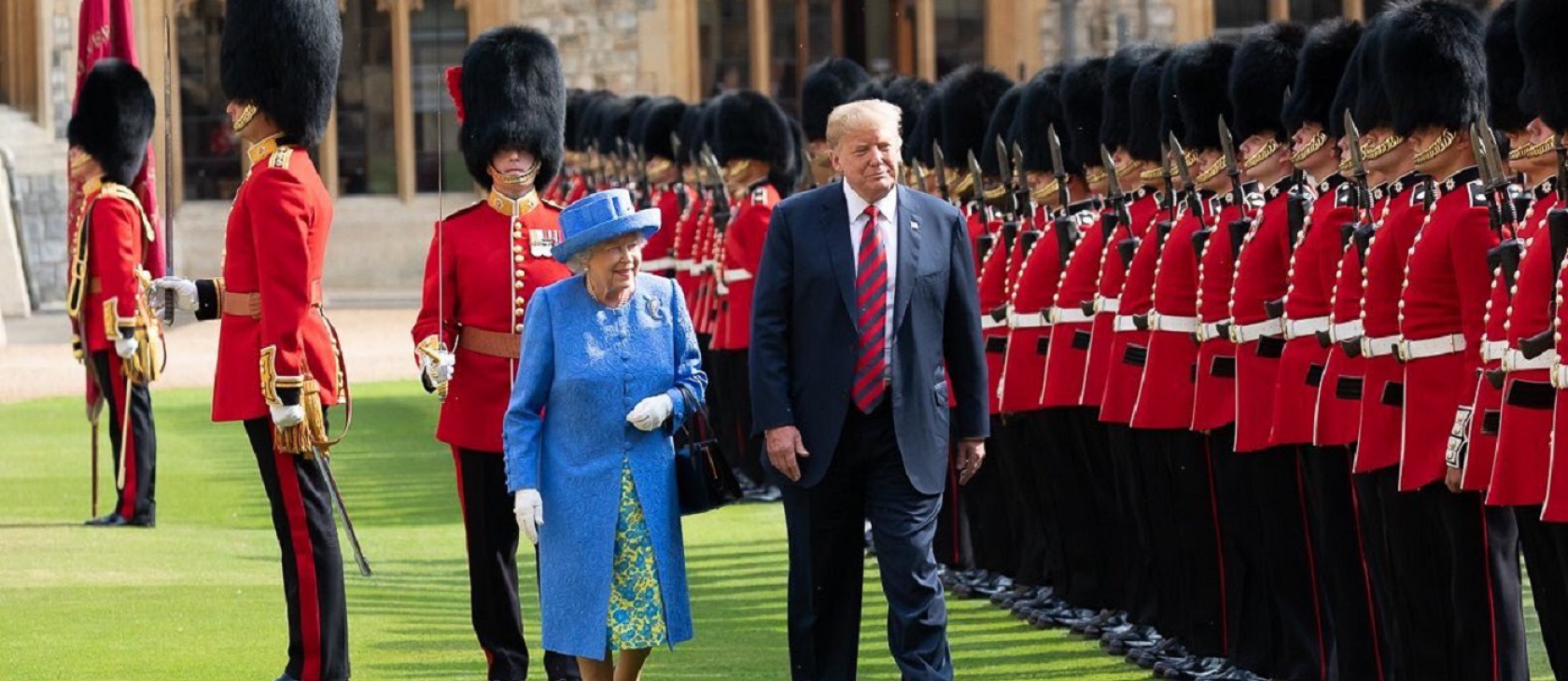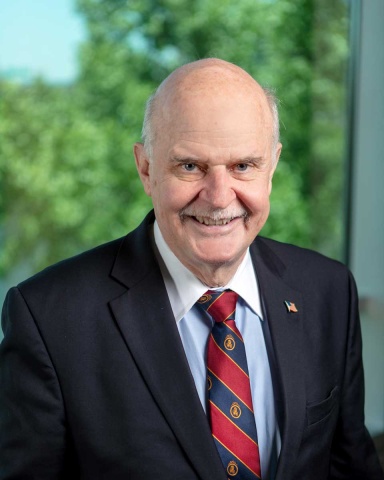I was recently in an interview on NTN24 (a CNN-type TV channel for the Spanish-speaking world) about President Donald Trump’s visit to the United Kingdom. Although the topic of Brexit was not supposed to be on the agenda for this state visit—especially in the presence of the queen—it seemed that Brexit was the first topic Trump brought up. Trump also expressed support for Boris Johnson, a leading contender to succeed Theresa May, and suggested that the United Kingdom complete Brexit and do so without paying the fine stipulated by the European Union.
Did Trump commit an unforgivable diplomatic sin? I would say it was more of a venial sin. This is, after all, not the first time that an American president has talked about Brexit—President Obama went to England and weighed in against Brexit. (Some argue that his support backfired and encouraged some to favor Brexit. One can never anticipate with certainty the impact of American presidents’ opinions on foreign policy.) The most important aspect of Trump’s current visit was to stress the relevance of the alliance and friendship between the US and England, especially at a time of considerable internal political divisions in the two countries. Theresa May leaves office on June 7, and her failure to deliver an acceptable plan for Brexit was a major cause for her resignation.
Speaking of Boris Johnson, Trump’s comments are no surprise—the two like each other and almost look alike. Last year, one of the oldest and largest think tanks in the United States, the American Enterprise Institute, gave its most important prize, the Irving Kristol Award, to Boris Johnson. His views are not very different from those of President Trump, and both leaders face a divided political scene. Showing the importance of friendship between our two countries is very important at this time, when Trump and his administration are using trade as a weapon for policy goals. As long as the conservatives remain in power in the United Kingdom, I am confident that in spite of the issues that remain we will not see a commercial war with the United States.
The suggestion that the United Kingdom should not pay any fine sounds more like a sentiment than a well-thought-out remark, much like “Mexicans will pay for the wall.” I doubt that the comment came from Mr. Trump’s economic team. When the United Kingdom joined the European Union they agreed to certain conditions, like paying for part of the EU budget, which includes projects which are planned to be completed in future years. If England tries to violate commitments, it could lead to an institutional crisis in Brussels and in the European Union’s plans. After Brexit, I expect that the European Union will not try to wage an aggressive trade war against Britain. The Europeans might find it convenient to have a tough stance now as a negotiating tactic, and Trump’s comment emboldens the pro-Brexit forces. Likely there will be a “fin” or “trade divorce” bill, which does not overburden either side. Nobody wins with commercial wars.
A combination of factors led to Brexit. Some Brexit voters want freer trade. Some are driven mostly for nationalist purposes. The people voted, but there are many internal powers that want to resist what the people voted for. The same happened with the election of Trump. Resistance to election results is dangerous because the institutions of the country are put in jeopardy when the voters’ rights are not respected.
Going back to trade, and Trump’s positive overtures about trade with a post-Brexit United Kingdom, the fact that the average tariff in England and the US is about the same should help. Canada and Australia also have low average tariffs. Unfortunately, however, in the US there is a certain protectionist wave. Peter Navarro, Trump’s Director of Trade and Manufacturing Policy, might soon make another effort at a “reciprocity act” which will impose some kind of punishment for countries that charge higher tariffs on US products than those imposed by our government on similar imported products. In the free-market think tank world there are already those who are elaborating proposals and plans to further liberalize the markets in the British Commonwealth. There is no doubt that in the short term, certain areas of the British economy will suffer once Brexit becomes a reality. Right now, though, we are seeing a political impact more than an economic impact. There is increased polarization in parties for or against Brexit. The lukewarm position of the most traditional parties in England, the Conservative and Labor parties, led to very poor results in the most recent European elections.
Some international observers are puzzled that President Trump should be received and hosted so warmly and graciously by the Queen of England. This in the same country where the mayor of London, Sadiq Khan, and the leader of the opposition, Jeremy Corbyn, called for peaceful civil protests in the streets. I will not defend Trump’s practice of answering insults with insults on social media, be they by Corbyn, the Mayor of London or, some time ago, Mayor De Blasio in New York. It is a pity that political language has stooped so low, but what has to remain are the great alliances of the civilized world. In matters of rule of law, England and the United States are countries where civil society makes great efforts to defend and protect the rule of law. They score similarly in world justice rankings. The United States has an economy that is seven times larger than the British economy, but by historical tradition, trade, and defense and security pacts, they are strong allies. Despite difficult issues such the battle with Huawei and the struggle for 5G dominance with China, with whom the British are more open to doing business, there is much more that unites the United States and the United Kingdom. They have similar tariff rates, similar respect for rule of law, and a very similar language. Some will not be pleased that the Queen received President Trump with such fanfare, but for me it was a very positive testimony that regardless of political ideas and diverse disputes, great powers and great republics can dialogue in a civilized way.
President’s Trump visit coincided with the last days of Theresa May as Prime Minister. I believe Trump showed some compassion for how difficult it was for her to lead the government during these times, with a Brexit vote that she did not favor and that very few people expected. But a large proportion of the British population does not want to be so subjugated by the Brussels bureaucracy. The Trump administration will look to the future and will work with the conservative party as well as Nigel Farage’s strengthened Brexit party. But he knows that the latter has much less weight in internal politics than in dealings with Europe.
The full Spanish-language interview can be viewed here.
(Photo credit: US Government, public domain.)




